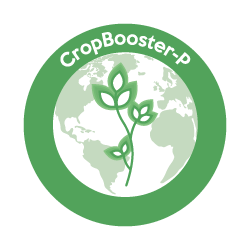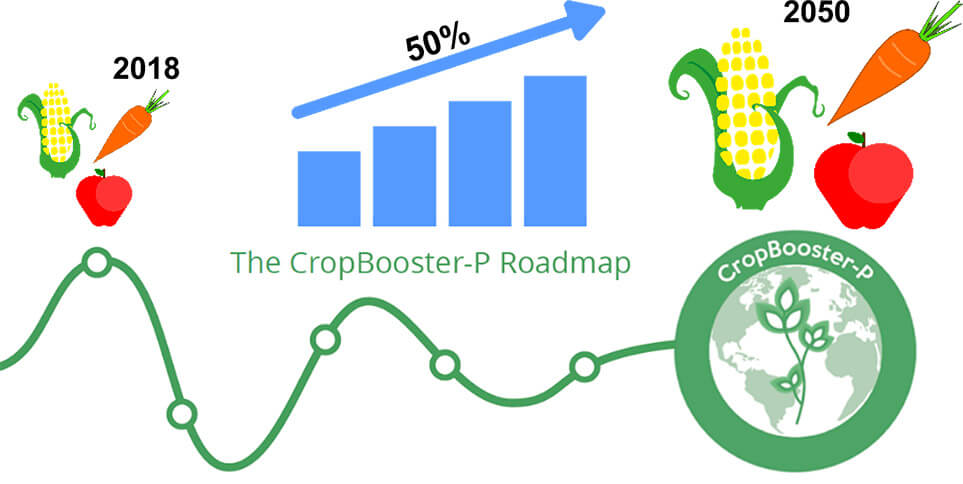EU Projects
Plant ETP is involved in EU-funded research projects addressing specific topics in the plant sector strategic to Plant ETP’s core activities related education, research and innovation
Plant ETP is involved in EU-funded research projects addressing specific topics in the plant sector strategic to Plant ETP’s core activities related education, research and innovation
GeneBEcon is an ambitious Horizon Europe-funded project that will examine the innovation potential of gene editing in enabling a sustainable bioeconomy in Europe. Through the application of this technology in potato and microalgae, GeneBEcon intends to promote energy-efficient, low-input, and zero-pollution agricultural production and clean industrial processing.
New Genomic Techniques (NGTs) are expected to represent a powerful toolbox (complementary to traditional breeding techniques) addressing current pressing challenges, including pollution and climate change. However, these techniques do not yet reach their full potential in Europe. GeneBEcon will advance research and innovation, acting on two fronts: through new gene editing developments at the technological level, as well as considering social, economic, and regulatory dimensions.
Among NGTs, gene editing holds the greatest potential for contributing to the ambitious objectives of the European Green Deal, the 2030 Climate Target Plan, and the Circular Economy Action Plan. However, risks and benefits must be fully understood to ensure that innovations with gene editing are developed in a responsible, inclusive, and transparent way. GeneBEcon aims to address these issues and propel Europe towards a cleaner, more sustainable and zero-pollution agricultural and industrial production.
GeneBEcon will construct a toolbox for gene editing for potato and microalgae, which will provide case studies to assess regulatory options, analyse the economic impact and assess societal perceptions. They would enable reduced use of pesticides in potato cultivation (notably through resistance to viruses, which incidence is expected to increase with global warming), chemical-free potato starch processing, and a resource-efficient and clean production of industrially relevant compounds from microalgae. Modified potato starch alone may save up to 75,000 tonnes of chemicals and 7.5 GWh of energy in the EU every year, and the repurposing of microalgae residual biomass as animal feed will considerably reduce waste production and CO2 emissions.

There are new challenges and opportunities for agriculture today, driven by climate change, the greening of products and processes, the reuse of side-stream products, the raised complexity of supply chains, and the increased availability of information. To successfully address and react to these drivers, agriculture and forestry need new business models and skills. Identifying existing and emerging skills needs in bioeconomy, sustainability, and digital technology is of paramount importance to develop a strategic approach that keeps the European agricultural sector competitive and sustainable in the long term.
The FIELDS project was set to address these challenges by identifying the skills required to meet the demands of modern agriculture and forestry. With a multi-stakeholder approach involving 30 partners from 12 countries, FIELDS aimed to develop a strategic, sustainable European approach to address skill gaps. The project focused on tailoring strategies to the specific needs of different countries, which included customized actions, occupational profiles, and training materials that adhered to EU quality standards (ESCO, EQAVET, ECVET) to support the mobility of learners across Europe.
Key Outcomes of the FIELDS Project:
The FIELDS project is also a proud participant in the Agri-Food Pact for Skills, a collaborative initiative supported by the European Union that brings together companies, associations, universities, training centers, and other stakeholders to address skills challenges across the agri-food value chain. The Pact aims to foster a culture of lifelong learning, ensure a strong investment in skills, and promote sustainable growth within the sector.
By joining the Pact, FIELDS contributes to the EU’s broader goals of developing and implementing strategies that enhance skills and competences within the agri-food industry. This collaboration helps to ensure that the outcomes of the FIELDS project align with the EU’s objectives and continue to benefit the agricultural sector across Europe.
The Agri-Food Pact for Skills website offers detailed information about the initiative, including how to join, the members involved, and the projects participating. The website also provides access to a database of public documents and results from the FIELDS project, serving as a valuable resource for end-users.

Increasing global crop productivity will be central in meeting some of the greatest challenges facing human kind: How will we sustainably feed 9.7 billion people by 2050, while realising the required transition from a fossil economy towards a bioeconomy, in order to mitigate and possibly reverse the effects of global climate change? Additionally, how can we provide new crop cultivars adapted to the constraints imposed across vast areas by climate change? A doubling of global crop productivity is required to produce enough plant biomass to achieve food and nutritional security, as well as to meet the demands of a future bioeconomy.

This increase in crop production must be achieved without any loss of nutritional quality to achieve full food security and to satisfy the nutritional aspects of a healthy diet. In addition, future agriculture will require crops that combine sustainability, efficiently using scarce resources like minerals and water and preserving Earth’s biodiversity, with a high resilience to adverse climate conditions. In order to meet these challenging demands, our current crop plants will have to be re-designed and a “future proof” profiling is urgently needed.
With a multitude of possible crops and genetic changes, combined with multiple environmental changes, policy and societal challenges, progress could be mired by a seemingly impenetrable complexity. CropBooster-P addresses this by identifying priorities and opportunities to adapt and boost productivity to the environmental and societal changes. The objective is to produce a quantitative evaluation of the most promising practical approaches to be enacted from 2021 to achieve a sustainable food supply into the future, while considering societal expectations and concerns.
Nine European Technology Platforms (ETPs) focusing on the Knowledge-Based Bio-Economy (KBBE) joined forces in the support action ‘BECOTEPS’ (1st January 2009 to 31st March 2011).
The main objectives and respective activities were to:
BECOTEPS aimed to help to link science and application by addressing synergies and gaps between the Strategic Research Agendas of the ETPs and with respect to the research preparedness of the scientific community by topical workshops on cross-cutting KBBE issues.
The first workshop addressed trust and collaboration in the food and feed chain, the second addressed the integration of the non-food chains, and the third addressed cross-cutting sustainability issues. The workshop recommendations on research and policy were summarised in a White Paper.
